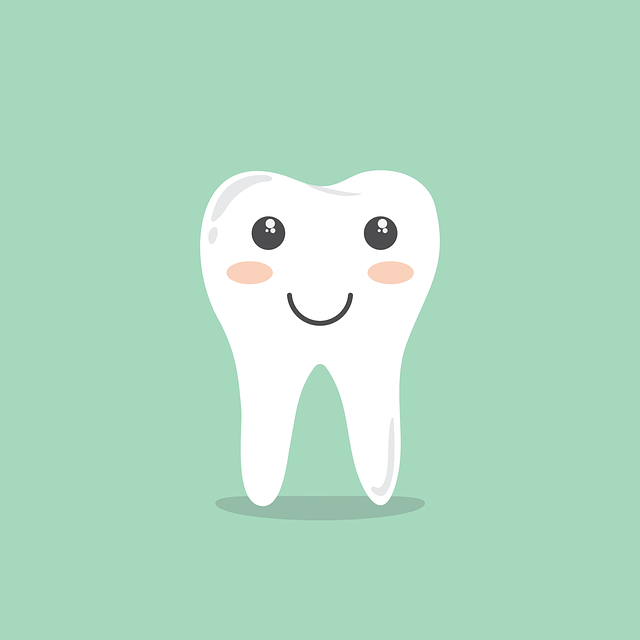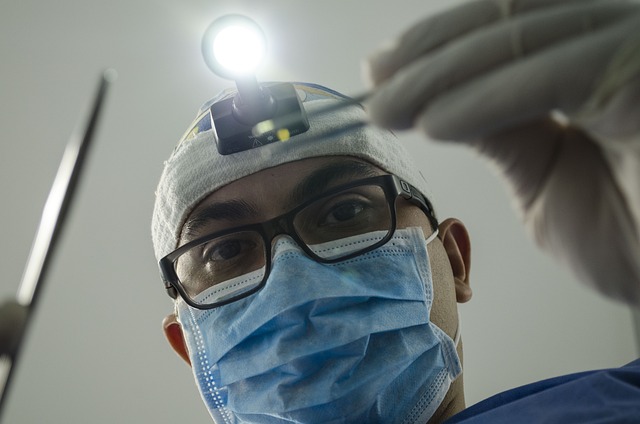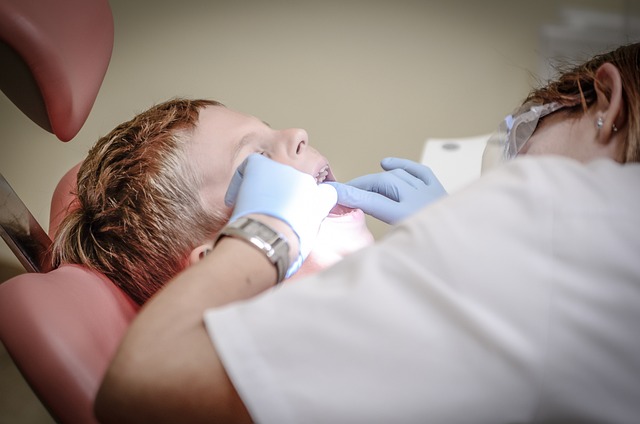When Can You Get Dentures After Tooth Extraction: A Quick Guide!
Welcome to our quick guide on the timeline for getting dentures after tooth extraction! If you’ve recently had a tooth extraction or are facing the possibility of needing dentures, we understand the anxieties and uncertainties that can come with the process. Thankfully, we are here to explain the important considerations and help alleviate any concerns you may have. In this article, we will delve into the factors that affect when you can get dentures after a tooth extraction, providing you with all the essential information you need to make informed decisions about your dental health. So, let’s dive in and explore this topic together!
1. Understanding Tooth Extraction: What to Expect and Why Dentures Might Be Necessary
If you’ve been told by your dentist that you need a tooth extraction, it’s natural to feel a bit anxious or unsure about what to expect. Understanding the purpose of tooth extractions and why dentures might be necessary can help alleviate some of your concerns. So, let’s dive in and explore!
Tooth extraction involves the removal of a tooth from its socket in the jawbone. While this may sound daunting, rest assured that modern dental techniques have made the process relatively quick and painless. Your dentist will first administer a local anesthetic to numb the area, ensuring you feel minimal discomfort during the procedure.
- Reasons for Tooth Extraction:
- Severe tooth decay or infection that cannot be remedied with a root canal or other treatments.
- Gum disease that has caused significant damage to the tooth and supporting structures.
- Impacted wisdom teeth that are causing pain, crowding, or other issues.
- Preparation for orthodontic treatment to create space for proper tooth alignment.
- Why Dentures Might Be Necessary:
- Improving chewing and speaking abilities by restoring missing teeth.
- Preventing surrounding teeth from shifting into the empty space.
- Preserving facial structure and preventing a sunken appearance that can occur with missing teeth.
- Boosting self-confidence and enhancing overall quality of life.
After tooth extraction, your dentist may recommend dentures to replace the missing teeth. Dentures are removable appliances that can restore your smile and help you regain normal oral function. Here are some common reasons why dentures might be necessary:
Remember, every individual case is unique, and your dentist will provide personalized recommendations based on your specific needs and oral health. Don’t hesitate to ask questions and communicate any concerns you may have!

2. The Healing Process: How Long Does It Take to Get Dentures after Tooth Extraction?
After a tooth extraction, many people wonder how long it takes to get dentures and when they can start enjoying the benefits of a new set of teeth. The healing process plays a crucial role in determining the timeline for denture placement and overall satisfaction with the outcome. While the exact duration varies from person to person, there are general milestones to consider.
1. Immediate Dentures: In some cases, immediate dentures may be placed right after a tooth extraction. These dentures are made prior to the extraction and can be placed into the mouth immediately after the extraction is complete. While this option provides an instant replacement for missing teeth, it’s important to note that immediate dentures may require adjustments as the healing progresses.
2. Healing Time: The healing process following a tooth extraction typically takes about 7-10 days. During this time, it is essential to follow the dentist’s instructions for proper care and maintenance. After the initial healing period, the gum tissues will continue to heal and reshape for several months. This phase is crucial in ensuring a comfortable and secure fit for dentures.

3. Immediate Dentures vs. Conventional Dentures: Exploring Your Options
Are you considering dentures but feeling unsure about which type to choose? Look no further! In this post, we will explore the key differences between immediate dentures and conventional dentures, helping you make an informed decision that suits your needs. Let’s dive right in!
- Immediate Dentures: As the name suggests, immediate dentures are placed in your mouth immediately after the extraction of your natural teeth. This means you won’t have to wait for your gums to heal before receiving your dentures. While immediate dentures offer the advantage of immediate replacement, it’s important to keep in mind that they may require regular adjustments as your gums and bone structure change during the healing process.
- Conventional Dentures: On the other hand, conventional dentures are created and placed in your mouth after your natural teeth have been removed, and your gums have fully healed. This healing process typically takes a few months. Conventional dentures are custom-made to fit your mouth perfectly. With proper care and regular dental visits, they provide a comfortable and long-lasting solution for people who need full dentures.
Both immediate dentures and conventional dentures have their own set of benefits and considerations. It’s recommended to consult with your dentist to determine which option is most suitable for you. Remember, whether you choose immediate or conventional dentures, you’ll be restoring your smile and regaining your confidence in no time. So why wait? Take the first step towards a beautiful smile today!

4. When Can I Start Wearing Dentures? Post-Extraction Recommendations
After having your teeth extracted, it’s natural to wonder when you can start wearing dentures. While the timeline can vary depending on individual circumstances, here are some post-extraction recommendations to keep in mind:
1. Allow for Healing: It’s important to give your mouth ample time to heal before wearing dentures. Usually, it takes about 1-2 weeks for initial healing to occur. However, complete healing can take up to several months. Your dentist will advise you on the specific time frame based on your situation.
2. Follow Your Dentist’s Instructions: Your dentist will provide specific guidelines and recommendations for wearing dentures. It’s crucial to follow these instructions to promote proper healing and ensure the best outcome. Depending on your case, your dentist may suggest waiting several weeks before wearing dentures or using a temporary denture during the healing period.

5. Patience is Key: Waiting for the Right Time to Receive Your Dentures
Waiting for the right time to receive your dentures can require a great deal of patience, but rest assured that the wait will be worth it. Here are some key points to keep in mind during this period:
1. Healing Process: After tooth extraction or any other necessary dental procedures, your gums and jawbone need time to heal before dentures can be fitted. This healing period ensures the best outcome for your denture fit and helps prevent discomfort or complications down the line. Trust your dentist’s advice and allow adequate healing time for optimal results.
2. Customization and Precision: Dentures are custom-made to fit your unique mouth structure, ensuring the highest level of comfort and functionality. This customization process takes time, as dental professionals carefully craft your dentures to ensure a perfect fit. This involves creating impressions of your mouth, working with you to select the appropriate shade for your prosthetics, and adjusting the dentures for optimal bite and speech. Remember, the more precision in the process, the more comfortable and natural your dentures will feel.
6. Caring for Healing Gums: Tips to Ensure Prompt Denture Placement after Tooth Extraction
After a tooth extraction, caring for your healing gums is crucial to ensure a smooth and prompt denture placement. Here are some helpful tips to promote healing and prepare for the next step in your dental journey:
1. Follow post-extraction care instructions: Your dentist will provide you with specific guidelines to follow after your tooth extraction. These instructions may include gentle rinsing with saltwater, avoiding hard or chewy foods, and keeping the extraction site clean. It’s important to adhere to these instructions to minimize the risk of complications and promote proper healing.
2. Maintain good oral hygiene: Even though there may be some sensitivity around the extraction site, it’s essential to continue practicing good oral hygiene. Gently brush your teeth twice daily using a soft-bristled toothbrush and a non-alcoholic mouthwash. Be careful around the extraction site and avoid applying too much pressure. Flossing is also crucial, but make sure to avoid the extraction area until it has fully healed.
7. Consultation and Evaluation: When to Visit Your Dentist for Denture Fitting
Regular visits to your dentist are crucial for maintaining and adjusting your dentures to ensure their proper fit and function. Here are some important guidelines to help you determine when it’s time to consult your dentist for denture fitting:
- Discomfort or irritation: If you experience any discomfort, sore spots, or irritation while wearing your dentures, it’s essential to schedule a consultation. Your dentist will examine your dentures and make necessary adjustments to enhance their comfort.
- Difficulty speaking or eating: If you find it challenging to speak clearly or your dentures are affecting your ability to eat comfortably, a visit to your dentist is recommended. They can evaluate your dentures and make the necessary modifications to improve their stability and function.
- Loose fit or slipping: If your dentures feel loose, slip out of place, or click while speaking or eating, it’s time to see your dentist. They will assess the fit of your dentures and determine if adjustments or relining is necessary.
Remember, regular dental check-ups are important even if you have dentures. Your dentist will evaluate your oral health, evaluate the fit of your dentures, and ensure there are no underlying issues. Don’t hesitate to reach out to your dentist if you encounter any concerns regarding your dentures. They are here to help!
8. Finalizing Your Denture Journey: The Steps Involved in Getting Dentures after Tooth Extraction
Obtaining dentures after tooth extraction can seem like a complex process, but rest assured, it is a well-structured and manageable journey. Here, we will walk you through the crucial steps involved in getting dentures. By understanding these steps, you’ll be better equipped to navigate your denture journey with confidence.
Dental Evaluation: Before any denture process can begin, your dentist will conduct a thorough dental evaluation to assess your oral health and determine the best denture solution for you. This may include X-rays and impressions to create a personalized treatment plan.
Extraction and Healing: If tooth extraction is necessary, your dentist will carefully remove the affected teeth. Afterward, a healing period is essential for the gums to recover. While healing, your dentist may provide a temporary denture to aid in appearance and functionality.
- Impression and Teeth Selection: Once your gums have healed, a detailed impression of your mouth will be taken. This impression is used as a mold to create your dentures. You’ll also have the opportunity to select the size, shape, and shade of your replacement teeth, ensuring a natural and comfortable fit.
- Try-In and Adjustments: When your dentures are ready, you’ll have a try-in session to assess their fit and appearance. Any necessary adjustments will be made to achieve optimal comfort and aesthetics. It’s essential to communicate openly with your dentist during this process, as they can make modifications to address any concerns you may have.
By following these necessary steps, you’re well on your way to completing your denture journey and embracing the benefits of a confident smile and improved oral function. Remember, your dentist will be there with you at every step, providing guidance and support throughout the process.
9. Adjusting to Your New Smile: Tips for Adapting to Life with Dentures
Adapting to life with dentures can take some time, but with a few helpful tips, you’ll adjust to your new smile in no time! Here are some suggestions to make the transition easier:
- Take it slow: In the beginning, it’s best to start with soft foods and gradually introduce harder foods into your diet. This will help you get used to chewing and prevent any discomfort.
- Practice speaking: Speaking with dentures may feel different at first, but with practice, you’ll regain your natural speech. Reading aloud or talking to yourself in front of a mirror can help you adjust to any changes in pronunciation.
- Clean your dentures properly: Maintaining good oral hygiene is crucial for the longevity of your dentures. Brush them daily using a soft-bristled toothbrush and denture cleaner. Avoid using toothpaste, as it can be too abrasive and damage your dentures.
- Give yourself time to adjust: Don’t be discouraged during the adjustment period. It may take a few weeks to feel completely comfortable wearing dentures. Remember, practice makes perfect!
Additionally, here are a few extra tips to help you adapt to life with dentures:
- Use a denture adhesive: If you experience frequent slipping or discomfort, using a denture adhesive can provide extra stability and increase your confidence.
- Schedule regular check-ups: Regular visits to your dentist are vital to ensure the proper fit of your dentures. Your dentist can make any necessary adjustments and check the overall health of your mouth.
- Be mindful of potential sore spots: As you adjust to your new dentures, it’s common to develop minor sore spots or irritation. If this happens, consult your dentist for adjustments to alleviate any discomfort.
10. Your Dentures, Your Confidence: Embracing the Benefits of Wearing Dentures
Wearing dentures can bring about a positive transformation in your life, allowing you to regain your confidence and enjoy the many benefits they offer. Here are some reasons why embracing dentures can be a game-changer:
- Aesthetic Appeal: Dentures are designed to resemble natural teeth, seamlessly blending with your smile and enhancing your facial appearance.
- Improved Speech: Missing teeth can affect your ability to pronounce certain words correctly. Dentures fill in those gaps, enabling clearer and more confident speech.
- Enhanced Chewing: Dentures provide functional teeth replacements, allowing you to enjoy a wider range of foods without discomfort or difficulty.
- Boosted Self-Esteem: With the restoration of your smile, dentures can significantly improve your self-image and boost your overall confidence.
Furthermore, dentures are customizable to fit comfortably in your mouth, providing optimal support and reducing the risk of oral health issues. They are also removable, making daily cleaning and maintenance a breeze. Through routine care, regular dental check-ups, and following your dentist’s advice, your dentures can last for years, ensuring that you maintain your beautiful smile and newfound confidence.
Frequently Asked Questions
Q: What are dentures and when are they needed?
A: Dentures are removable dental appliances that replace missing teeth and surrounding tissues. They are needed when one or more teeth are missing, which can impact the ability to speak and chew properly and may affect one’s self-confidence.
Q: How long after tooth extraction can you get dentures?
A: The timeline for getting dentures varies depending on individual circumstances. In most cases, dentures can be made and fitted within 8-12 weeks after tooth extraction. However, this timeframe can be shorter if immediate dentures are provided.
Q: What are immediate dentures?
A: Immediate dentures are a type of dental prosthetic that can be placed immediately after tooth extraction. These dentures are pre-made prior to the extraction and are temporarily placed in the mouth. They allow for immediate tooth replacement and help with maintaining appearance and functionality during the healing process.
Q: Are immediate dentures the best choice for everyone?
A: Immediate dentures are not suitable for everyone. Your dentist will evaluate your oral health and discuss the most appropriate option for you. Factors such as bone volume, healing capacity, and individual needs will determine whether immediate dentures or an alternative approach is best.
Q: What is the advantage of immediate dentures?
A: Immediate dentures offer immediate tooth replacement, which means you don’t have to go without teeth during the healing period. They also assist in maintaining facial structure and allow for a smoother transition to a permanent denture later on.
Q: How long does it take for the gums to heal after tooth extraction?
A: The healing time after tooth extraction can vary depending on the individual and the complexity of the extraction. On average, it takes around 1-2 weeks for the gums to fully heal. However, complete bone healing can take several months.
Q: Can I eat normally with dentures right after tooth extraction?
A: It is essential to follow your dentist’s instructions regarding your diet after tooth extraction. Initially, you may need to stick to a soft food diet while your gums heal. As you transition to dentures, your dentist will provide guidance on gradually reintroducing more solid foods into your diet.
Q: How often should dentures be replaced?
A: Ideally, dentures should be replaced every 5-7 years. However, the time frame may vary depending on the individual’s oral health, changes in gum and bone structure, and overall wear and tear. Regular dental check-ups will help determine when a replacement or adjustment is necessary.
Q: How do I care for my dentures?
A: Proper denture care is vital to maintaining oral health. Dentures should be brushed daily with a soft-bristle toothbrush or denture brush to remove food particles and plaque. Soaking them overnight in a denture cleanser solution is also recommended. It is important to rinse dentures thoroughly before placing them back in your mouth.
Q: Can dentures be repaired if damaged?
A: In most cases, dentures can be repaired if damaged, depending on the extent of the damage. It is crucial to contact your dentist promptly if your dentures crack, chip, or become loose. Attempting to repair them at home can lead to further damage and should be avoided.
Q: Are there any alternatives to dentures?
A: Yes, there are several alternatives to dentures depending on your oral health and personal preferences. Dental implants, dental bridges, and implant-supported dentures are some alternatives that offer a more permanent tooth replacement option. Consulting with your dentist will help determine which alternative is best for you.
Conclusion
In conclusion, getting dentures after tooth extraction is a common and effective solution for restoring your smile, confidence, and oral functionality. It is important to consult with your dentist to determine the appropriate time for denture placement based on your specific circumstances. Remember, every individual’s healing process is unique, so it’s crucial to be patient and follow your dentist’s instructions for optimal results.
Once you have received your dentures, it may take some time to adjust and become accustomed to wearing them. In the initial stages, you may experience slight discomfort or difficulty while eating and speaking. However, with patience and practice, these concerns will gradually diminish, and you will adapt to your new prosthetic teeth.
Maintaining good oral hygiene habits, including regular brushing, flossing, and regular dental visits, is crucial in ensuring the longevity and optimal performance of your dentures. Your dentist will guide you on the proper care and maintenance regimen to keep your dentures clean and functioning at their best.
Remember, dentures can significantly improve your quality of life, allowing you to eat, speak, and smile with confidence. If you have any concerns or questions about the denture placement process, don’t hesitate to reach out to your dentist. They are there to provide the necessary guidance and ensure your journey to a beautiful and functional smile is a smooth and successful one.
So, take the first step towards regaining your oral health and restoring your self-assurance by consulting with your dentist about dentures after tooth extraction. Say goodbye to missing teeth and hello to a smile that will radiate your inner confidence for years to come!






